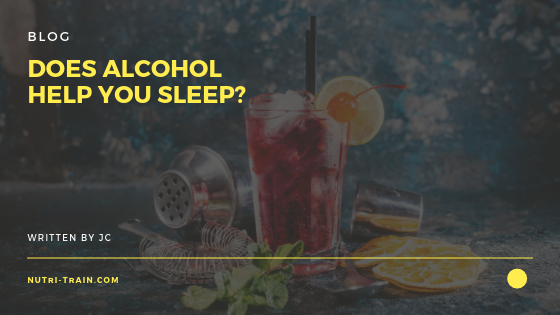|
For years, people have been using alcohol as a way to destress and sleep, yet for years our sleep problems have persisted. Maybe it’s time we ask ourselves if alcohol really helps? Some people do find it easier to fall asleep after a drink, as alcohol is a sedative, but it doesn’t improve the quality of your sleep. To start with, it impedes your wake-sleep states by inhibiting neurotransmitters (messengers) in the brain,[1] which is why we see so many people falling asleep in the middle of the day after too many the night before. That’s also why people feel groggy the next day. Alcohol also causes a “rebound” effect by suppressing certain sleep stages, which leads to disruptions later in our sleep once it’s been metabolised and eliminated. We cycle through four sleep stages every 90 minutes, and we have two phases during which different stages become more active. For example, alcohol supresses our REM sleep,[2] the stage in which we dream, consolidate memory and process information. This stage is usually lower during the first phase of our sleep, but the suppression leads to a surge in the second phase as we try to make up for the loss. That may explain why so many people experience such vivid dreams early in the morning following a night on the sauce. The first sleep stage is also affected by alcohol. It stimulates our heart rate and increases our body temperature, causing more disruptions as our body tries to adjust,[3] which results in more wakeful periods. These wakeful periods in turn lead to the suppression of the release of growth hormone[4] that help bone, muscle and other tissues to grow. Excessive alcohol consumption causes inflammation and is described in literature as ‘neuroinflammatory’, ‘disease progressive’, ‘asthma inducing’, ‘immunosuppressing’ and ‘infection increasing’.[5] It’s never described as a sleep aid. What’s interesting, however, is the fact that alcohol in low and moderate doses has been shown to improve insulin sensitivity.[6] Insulin is a storage hormone, and increasing its sensitivity is a usually a plus, as most people tend to have some or high resistance to it. But in this case it’s extremely negative, as alcohol has a weakening effect on our inhibition and control[7] and there’s evidence that most people overeat and over-consume high-calorie foods[8] while drunk. Your body’s ability to efficiently uptake more energy increases, but so does your desire to eat more junk food, a desire that alcohol makes harder to control. A glass of wine takes around three hours to clear the system, and a beer takes around two. I suggest not only trying to minimise your intake overall but being mindful of how long it’ll take for your body to metabolise the alcohol so your sleep isn’t disrupted. Alcohol is certainly not a sleep aid, and its intake should be seriously limited if you’re trying to improve your overall health and/or sleeping habits. I’d love to know what you think, so please leave me a comment below. Speak soon, JC. [1] KOOB, G.F. The neuropharmacology of ethanol’s behavioural action: New data, new paradigms, new hope. In Pharmacological Effects of Ethanol on the Nervous System. Dietrich, R.A., and Erwin, V.G., eds. New York: CRC Press, 1996. pp. 1-12. [2] WILLIAMS, H., AND SALAMY, A. Alcohol and sleep. In The Biology of Alcoholism. Kissin, B., and Begleiter, H., eds. New York: Plenum Press, 1972. pp. 435-483. [3] ROEHRS, T., YOON, J., AND ROTH T. Nocturnal and next-day effects of ethanol and basal level of sleepiness. Human Psychopharmacology 6:307-311, 1991. [4] EKMAN, A.C., VAKKURI, O., EKMAN, M., ET AL. Ethanol decreases nocturnal plasma levels of thyrotropin and growth hormone but not those of thyroid hormones or prolactin in man. Journal of Clinical Endocrinology and Metabolism 81:2627- 2632, 1996. [5] https://www.ncbi.nlm.nih.gov/pmc/articles/PMC5003611/ [6] https://www.bmj.com/content/313/7064/1040.short [7] https://pdfs.semanticscholar.org/56b4/660a207a4028c0c8a7a92c6675e1fa73e3fe.pdf [8] https://academic.oup.com/ajcn/article/74/3/322/4739584
0 Comments
Leave a Reply. |
AuthorsJC and The Nutri-Team Archives
November 2020
Categories
All
|

 RSS Feed
RSS Feed
